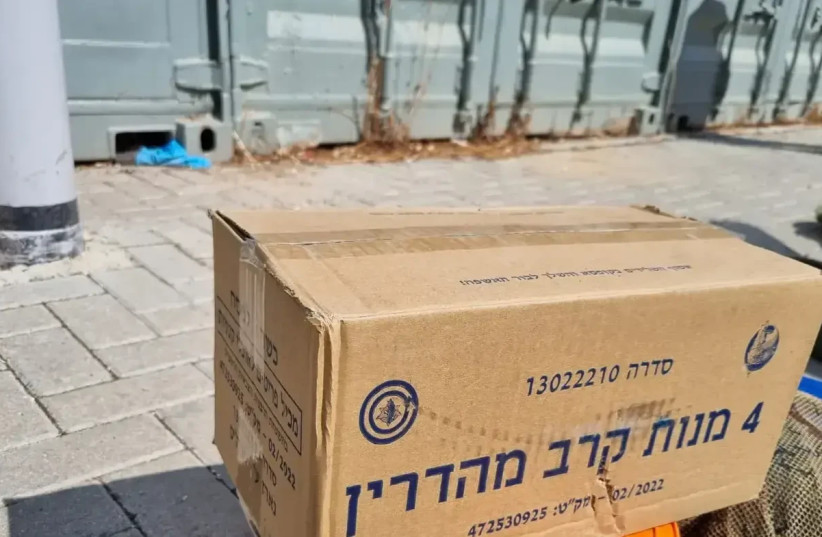The recent terrorist attack by Hamas on settlements in southern Israel, and the subsequent IDF operation, Swords of Iron, have led to a unique collaboration between the Israeli food industry and the security forces.
Restaurants and hospitality spaces have transformed into culinary hubs, providing support to both residents and soldiers engaged in the ongoing conflicts in Gaza and on the Lebanese border.
However, it is becoming increasingly challenging to sustain the continuous aid convoys due to the intensifying hostilities.
During combat situations where hot and varied meals are not readily available, the IDF provides soldiers with combat rations. These rations come in cartons designed to feed four soldiers for a day and consist of non-perishable food items that can be easily carried in backpacks and vests.
The foundation: Tuna
Gone are the days of the legendary loaf, which was a staple in combat rations and the source of many comedy skits. The IDF removed it from the combat ration years ago and replaced it with a range of protein options, including variations of shawarma, meatballs, and even options for vegans and vegetarians.
The combat ration has evolved into a gourmet experience, with soldiers enjoying foods by chef Yaniv Gur Arie.
The foundation of the combat ration is tuna, which is complemented by an assortment of bread, fruits, and vegetables.

The packaged battle dishes also contain green olives, white beans in tomato sauce, sweet corn kernels, and a mix of indulgent treats like salted peanuts, halva, and pineapple pieces in syrup. Other combat ration kits may include spicy tuna salad, hummus and tahini, cocoa or date spread, canned peas, and various fruits.
Soldiers also have access to high-calorie, high-fiber energy bars inspired by the US Army's "Soldier Fuel" energy bars.
The goals: Nutrition, cost and shelf life
When creating combat rations, nutrition, cost, and shelf life are crucial factors. The aim is to provide soldiers with sustenance during intense combat days while ensuring practicality and efficiency.
While soldiers continue to rely on their stomachs to keep them going, the IDF has strived to make the combat ration as satisfying and nutritious as possible.
